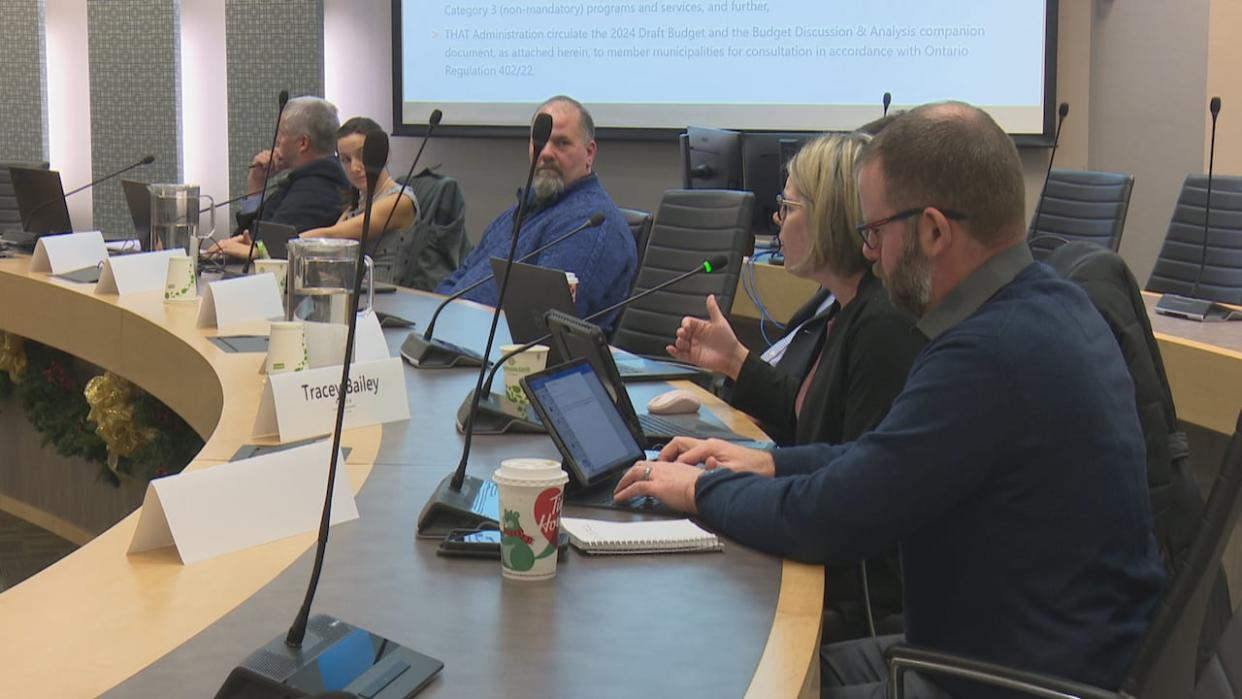ERCA program, position cut as Windsor pulls back some funding

An Essex Region Conservation Authority (ERCA) employee was laid off just before the holidays and a program cut for 2024 in the wake of a Windsor city council decision to pull back funding for some ERCA programs.
During the budget deliberations of the conservation authority on Thursday, the board opted to suspend its rural and agricultural water stewardship program for 2024.
"Someone chooses to change the formula or pull back from that, those positions are unsupported," Conservation authority CAO Tim Byrne told the board. "That is a very, very valuable program area for us if indeed we are, we are attempting to manage this watershed."
Windsor council recently voted to pull back funding in two areas of non-mandatory conservation authority programming: land acquisition and rural and agricultural water stewardship.
In Windsor's council debate, councillors opted to set cash aside for land acquisition, but funded agricultural water stewardship at just five per cent because the city has little agricultural land. They opted to fund seven other programs at the requested allocation of just less than half the program cost.
During debate, Ward 6 Coun. Jo-Anne Gignac voiced support for council's direction, saying they would always be partners to ERCA.
"We've been partners, we've been darn good partners over the years and we're not going to abandon that ... I think what administration is recommending is beyond reasonable. And so that's what I'm going to support."
All programs had previously been deemed non-mandatory for municipalities to fund by the province.
Funding for the agricultural water stewardship program was about $35,000, of which the city was asked to provide half.
The issue sparked some barbs from councillors from other municipalities during the discussion on ERCA's budget.
"So if Windsor doesn't want to pay for the ag (agriculture) part, maybe Leamington doesn't want to pay for the Grand Marais drain," said Leamington Coun. Larry Verbeke. "Like is there a give and take here now, or is this just going to create the Hatfields and the McCoys?"

Tim Byrne is the CAO of the Essex Region Conservation Authority. (Dale Molnar/CBC)
Byrne, visibility upset during portions of the meeting discussing the layoff, said it was the agriculture tech position related to that program that received layoff notice.
The program helped farmers ensure the health of the watershed through best practices, especially dealing with fertilizer.
"I guess how unfortunate that you know to save $35,000… I guess that, well some people are going to feel that unnecessary burden this year," said Kingsville Coun. Thomas Neufeld.
Representing Windsor on the conservation authority board are Couns. Angelo Marignani, Kieran McKenzie and Jim Morrison, who serves as the chair of the board.
In deliberating the approval of the budget, McKenzie said the situation was a result of "poor decisions that have been made at a number of different levels."
"This day is — not for me and I don't think for many of us — a good day," he said, calling the province's changes on conservation authorities "politically motivated."
"Here we are today … in Windsor-Essex where we're faced with weakening our natural heritage protection, weakening our source water protection because of a door that was opened by the province and I'm sad to say my municipality decided to walk through."
The total $8.8-million budget contained a 2.6 per cent increase to mandatory services — those that member municipalities must fund — and a 63 per cent cut to non-mandatory services, Byrne said.
LISTEN: Contaminated sediment headed for Watford landfill
"We are going to pause [the agricultural water stewardship program] area because you know the funding was unsupported and we're going to move ahead with a reimagining or realigning of that program," Byrne said.
"We're going to come back in 2025 with a recommendation to this board of how we're going to best provide service to 75 per cent of this watershed."
The change in mandatory and non-mandatory funding envelopes was initiated by the province in 2021 and put into action this year. Byrne said that contrary to its desired effect, the change had "doubled or tripled" the red tape of the conservation authority.
He also said the conservation authority's lean staff of under 40 people worked to support programs across the organization, making it difficult to "silo" funding by program.
"That unfortunately exposes people when you are a very small, compact staff," he said.
Change could impact tourism, economy: Environmental advocate
Derek Coronado, coordinator of the Citizens Environmental Alliance, said the decision could have impacts broader than just water quality.
"Every year, we're worried about algal blooms in Lake Erie and the biggest driver of those algal blooms is … runoff from agricultural sources," he said.
"So controlling and limiting that sort of pollution is very important not only for water quality … but think for example of tourism. Do people want to visit the lakes and see that kind of thing? I don't think it's something people will be attracted to. It has economic impacts as well, it's not just environmental detriment."
The ERCA board will vote on next year's budget in the new year.


